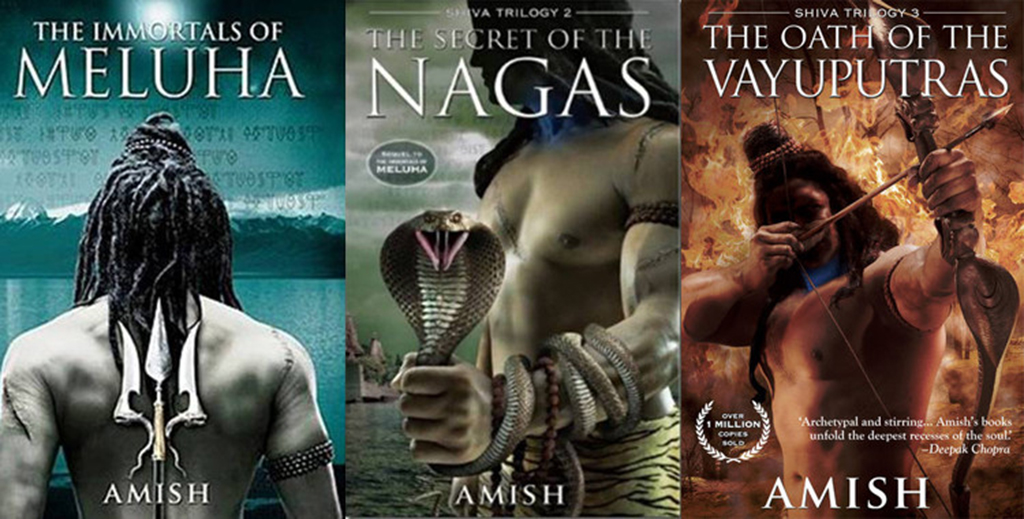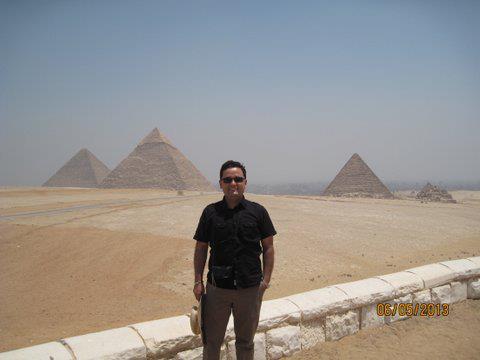A Philosopher Writes
As someone who writes urban Indian love stories, I had no idea what to expect when I read The Immortals of Meluha. Amazingly enough, this utterly unique retelling of the legend of Shiva, despite its ancient setting, seemed totally urban, and despite being an adventure, it was at its heart quite the romance. Plus, this book has been such a trailblazer—one of the first self published books to see such large sales numbers in India, and to result in major book and movie deals. So, when I had the opportunity to speak to best-selling author, Amish Tripathi, how could I refuse?
In this three-part series Amish talks philosophy, writing and marketing—the holy triumvirate of his publishing success.
Part 1: The Genesis of the Books
Hi Amish! Why this story? What about this particular story called to you?
Hi Sonali! It was about the philosophy for me and that philosophy then got converted into an adventure. The book series is essentially an adventure, the purpose of which is to convey some philosophy, the philosophy of evil.
This philosophy occurred to me nine-ten years ago. I grew up in a very religious family. I grew up with the Vedas and the Upanishads. It was very religious and very liberal at the same time.
I never thought I’d be a writer. I never wanted to be a writer. I had written no fiction before Immortals. Not even a small story in school, absolutely nothing.
This philosophy occurred to me as part of a discussion with my family. We were watching a TV program and this triggered a debate in our family on the nature of evil and that was the genesis of the Shiva trilogy.
So what happened in those ten years between the seeds for the book being sown and the book being written?
The first book took five years to write. I wrote the first two books along with my job. I wrote the first book on my commute in the back seat of my car. In Mumbai the commutes are long. My commute was an hour and a half each way. Since I had never written any fiction in my life, obviously, the first book took long.
The second and third books came out much quicker because I had the entire story in my mind.
Did you lay down the arc for all three books before you started, what was your process?
I tried to follow a process but I’m a marketing guy, an MBA, you know how we MBAs are. But a process didn’t really work for me. That writing down the story summary and character sketches, for me that was a flop. What worked for me was when I just surrendered to the story and just let it flow. In a way I discovered the story while writing as much as the readers discovered the story while reading. And that’s how I write. I’m more of an instinctive writer. The characters already exist in a parallel universe and I just get to enter that universe and record what I see. I have no real control over the story. That’s how I write.
So the outline process did not work for you, but what about research? What kind of research went into these books?
I don’t do research while writing a book. That distracts me. The way I look at it is that everything I’m not doing while writing is research. I’m a voracious reader, I absolutely love reading. Everything I read, it’s like research that goes into the back of my mind and it will come out in some book, whenever it is needed. That’s as far as the historical, economic, scientific knowledge is concerned in the book. But as far as the mythological, spiritual, and philosophical knowledge is concerned, I grew up with much of that. I learnt it from my family. I learnt it the old fashioned way, through listening. That’s the traditional way.
In the traditional way you weren’t supposed to read this knowledge you were supposed to listen to it from a guru and then you were supposed to question. That role was very clear. You’re not supposed to repeat what the guru says like a parrot. There’s supposed to be a difference between a human being and a parrot. So you are supposed to question, you’re supposed challenge your guru if they don’t make sense. That’s the only way you can understand things deeply. Like I said, my family is also a very liberal family. So questioning was always encouraged.
So share some of that experience with us. What was it like growing up in your family?
My grandfather was a pandit in Banaras, and a teacher. He was Head of Department, Mathematics at Banaras Hindu University. He had a Masters in mathematics but he also had a Masters in Sanskrit. We are a knowledge- and research-loving family. We like to read. We like to debate. Everyone has some degree or the other. My father is an MTech. My mother is an MA in economics. It’s a good atmosphere to grow up in.
How old were you when you were allowed into these discussions about religion?
We were allowed in when we started asking questions. That was the atmosphere. No question was considered stupid. Mom and dad would patiently answer all our questions. We were four siblings. We would debate with each other. Of course we were enthusiastic about sports and all as well, but our main social circle was the family. We spent most of our time within the family. We liked debating and discussing things.
Do you have a special, impactful memory about these discussions that you would like to share?
We had a long debate once about the power of God. I must have been in the fourth standard. My elder siblings were having that discussion with mom and dad—my elder brother is six years older and my sister is eight years older than me. They were discussing: is God more important, is karma more important, is the universal law more important, is dharma more important, or is love more important. Various examples were debated. And I still remember that discussion. It was just a very esoteric discussion, a really good discussion. Then there was the one about Gandhari cursing lord Krishna. Or whether karma or dharmas are more important. These were the kinds of discussions we used to have.

